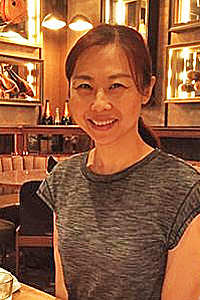
The tide is turning for Hong Kong's tycoon families. All of a sudden, the younger generation has to work a lot harder to convince banks and investors that their money is safe, and their pet projects are savvy.
Among them, Adrian Cheng, a Harvard-educated third-generation heir, and Richard Li, "superman" Li Ka-shing's second son, are the most audacious. At New World Development Co, Mr Cheng has been building out his K11-branded commercial projects, betting that those in Hong Kong and wealthy parts of mainland China appreciate and will pay for artistic and innovative designs.
Across the street, Mr Li's insurance business has been expanding into Southeast Asia, with the belief that consumers will want financial protection once they become middle class. Both endeavours have cost billions of dollars and have been fueled with debt.
For years, financing was easy. New World Development is not rated by any of the big three agencies, even though it has about $9 billion (327 billion baht) of bonds outstanding.
Meanwhile, Li's FWD Group Holdings Ltd. has a track record of prioritizing business expansions over bondholder interests. In May 2022, it decided not to call a zero-coupon $750 million perpetual note issued by a subsidiary that operates in Southeast Asia, citing corporate reorganisation and an impending initial public listing. Since then, Mr Li has postponed FWD's Hong Kong IPO twice, leaving bond investors in the dark as to when they will get their money back.
Hong Kong's finance world is changing, however. Rising interest rates mean tycoons have to juice up the yield to make a hedge fund's carry trade work. In addition, many of the banks' private-wealth clients are not as rich as before, after being burned by Chinese developers' dollar-bond defaults. They have turned skittish. Already, cracks are appearing. Last week, FWD pulled a 10-year $325 million bond offering. It was a bit of an embarrassment for Mr Li. Not only was the deal size small, it was the holding company's first issuance as an investment-grade entity. Moody's Investors Service had assigned FWD a Baa2 rating in late August.
The contention was the pricing. FWD had offered to pay 290 basis points above the Treasury yield. But investors clamoured for more spread over the bonds of Hong Kong-listed AIA Group Ltd, a profitable insurer with a much stronger market presence across Asia.
If an aborted bond deal was just a hiccup, New World's response to social media claims it was seeking private financing at 11% to 12% interest was epic. In late August, to halt a bond selloff, the builder had to release an announcement on the Hong Kong stock exchange, denouncing such "untrue and unfounded statements". As I marvelled last week, when was the last time a tycoon family had to come out defending itself against little-known short sellers?
It is a buyer's market now. Increasingly, these dynasties have to calm investors by pledging financial support for their flagship businesses. For instance, in late 2021, Henderson Land Development Co., one of the city's most prominent builders, paid a record HK$50.8 billion (236 billion baht) for a harbour-front plot in Central, with HK$63 billion worth of investments to follow.
In its latest semi-annual report, the builder said shareholders' loans to the company, which amounted to HK$60 billion as of June, "have always been the Group's stable source of funding". It was a signal from the Lee Shau-Kee family that Henderson has enough liquidity at a time when Grade-A office vacancy is on the rise, and investors question the returns of that land deal. Meanwhile, New World's private family office plans to buy its equity stake in a separately-listed subsidiary as a way to inject an estimated HK$17.8 billion of capital into the cash-strapped developer.
This is the lay of the land: Hong Kong's money world is now asking for higher risk premium from its tycoons. The earlier the city's debt kings come to terms with this, the better. It's time they turn on the charm. ©2023 Bloomberg
Shuli Ren is a Bloomberg Opinion columnist covering Asian markets. A former investment banker, she was a markets reporter for Barron's. She is a CFA charterholder.
